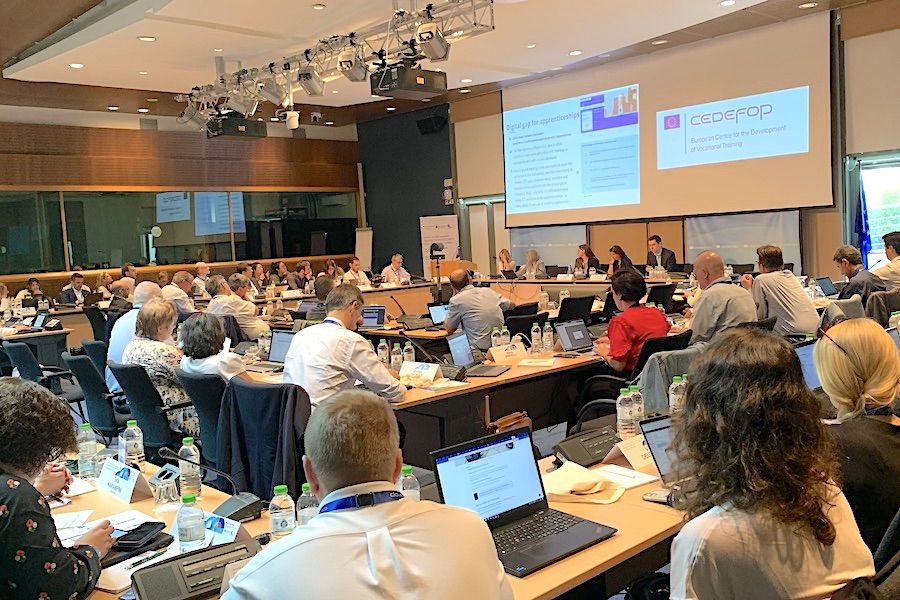The digital transition is a game-changer for apprenticeships and apprentices, a joint Cedefop – OECD symposium concluded.
The third symposium co-organised by Cedefop and the Organisation for Economic Co-operation and Development (OECD) took place on 15 and 16 June in Thessaloniki and brought together 100 researchers, policy-makers, social partners and practitioners from around the world to explore the links between apprenticeships and the digital transition and discuss their implications for policy-making.
The symposium, a European Year of Skills event, was built around 13 papers from Europe, the US, Canada and China that shared new evidence or offered analysis on the challenges and opportunities that digitalisation already brings, or may bring, for apprenticeships in the future.
The main conclusions of the event are that:
- On the one hand, digitalisation calls for digital skills to be developed across apprenticeship occupations and requires occupation-specific responses, including opening apprenticeships to new digital sectors.
- On the other, digital tools such as simulators, virtual reality, as well as blended learning approaches which combine traditional classroom with online learning, can make the learning process even more relevant, engaging and efficient, and can attract new groups of learners.
Huge upskilling and reskilling needs
In his opening remarks, Cedefop Executive Director Jürgen Siebel noted: ‘The link between the symposium and the European Year of Skills is timely as the European Union aims to address skills gaps with a focus on reskilling people for the digital and green transitions. Cedefop data on the impact of digitalisation and automation on EU jobs show that it translates into task re-engineering, not massive job destruction. But we see huge upskilling and reskilling needs in relation to digital skills.’
OECD Director for Employment, Labour and Social Affairs Stefano Scarpetta said: ‘A responsible vocational education and training system is critically important to prepare young people for today’s and, in particular, for tomorrow’s jobs and provide upskilling and reskilling opportunities for workers affected by the digital transition. Apprenticeships play an essential role in this respect as they are designed to bring the education system, on one hand, and the world of work, on the other, together.’
The symposium also made clear the great potential, relevance, and importance of apprenticeships in helping develop the skills people and enterprises need to shape and adapt to the green and digital transitions.
But, as Cedefop's Deputy Director Mara Brugia noted in her concluding remarks, 'digitalisation may open apprenticeships to new sectors, beyond the sometimes-small occupation silos, to new type of learners and higher qualification levels. And this, in turn, can make apprenticeships attractive to more groups of young people. However, whether the digital and the green transition will boost the importance of apprenticeships is something yet to be seen.'
A publication of the research papers will be available online in January 2024.




